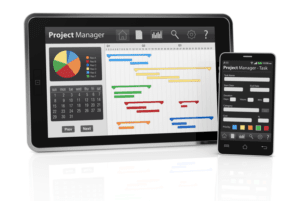
You must record all financial transactions — ideally once a week. These include all incoming invoices, outgoing bill payments, purchases, and sales. In this module, bookkeeping 101 you will learn about the accounting cycle and how bookkeepers use the general journal and general ledger to record and keep track of business transactions.
- If you wait until the end of the year to reconcile or get your financial transactions in order, you won’t know if you or your bank made a mistake until you’re buried in paperwork at tax time.
- You must record all financial transactions — ideally once a week.
- Financial statements should be regularly prepared and used for decision-making.
- Bookkeeping records financial transactions, whereas accounting analyzes the financial health of a business based on those records.
- At the end of every pay period, the bookkeeper will accumulate employee payroll details that include hours worked and rates.
Bookkeepers make sure the information in the books is accurate and that the books are reconciled each month. In essence, they complete the first step in the accounting process. It’s important to note that not all lenders and investors require certified or audited financial statements. However, it’s still a good idea to ask an accountant to review your bookkeeper’s financial statements for accuracy and completeness prior to submitting them to a third party for consideration. And even if you’re not looking for funding, consider asking an accountant to review your financial statements at least once a year.
How to Start Bookkeeping in a Small Business
Let us dive right in and find out what bookkeeping is and how it can help your business. I was really impressed with the videos and information that was presented in this course. We asked all learners to give feedback on our instructors based on the quality of their teaching style.
These expenses that haven’t been paid yet are categorized as accounts payable. Unlike accounting, bookkeeping does not require any certifications. Individuals https://www.bookstime.com/ who are successful bookkeeping professionals are highly organized, can balance ledgers accurately, have an eye for detail and are excellent communicators.
Internal management reports
Your bookkeeper might also prepare other auxiliary reports for your business, like accounts payable and accounts receivable aging reports. You can use these to make business decisions, but they should not be presented as audited, certified or official financial statements. Bookkeeping is broadly defined as the recording of financial transactions for a business. It’s a key component of the accounting process and can be done as frequently as daily, weekly or monthly. Accurate bookkeeping is vital to filing tax returns and having the financial insights to make sound business decisions. When you keep detailed, organized records of your business transactions, tax season suddenly won’t feel like such a daunting chore.
- The best part is that you will not require any prior knowledge or an accounting degree to get started.
- If you need to borrow money from someone other than friends and family, you’ll need to have your books together.
- Use those financial statements to make critical business decisions.
- This is the first course in a series of four that will give you the skills needed to start your career in bookkeeping.
- In essence, they complete the first step in the accounting process.
- You don’t need to commit to an accounting degree to master the techniques you’ll need.
Try setting aside and scheduling a ‘bookkeeping day’ once a month to stay on top of your financials. Use that day to enter any missing transactions, reconcile bank statements, review your financial statements from the last month and make any major changes to your accounting or bookkeeping. Finally, if you want someone else to do your bookkeeping for you, you could sign up for a cloud-based bookkeeping service like Bench. To set up a budget, gather your financial data, such as income statements, balance sheets, and cash flow statements. This will give you a clear picture of your business’s past financial performance and help you make realistic projections for the future. The two key accounting systems are cash accounting and accrual accounting.
Adjust Entries at the End of Each Accounting Period
Maintaining bookkeeping tasks is essential for the stability and success of small businesses. With so many moving pieces (including assets and liabilities, and income and expenses), small business owners must stay on top of it all. Accountants rely on bookkeeping records to analyze and advise on the financial activity, health, and growth potential of a business.


















